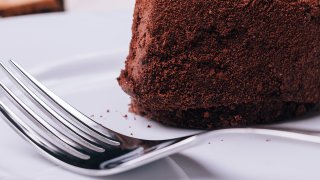
When it comes to vices during the pandemic, simply put, it's been difficult to say "no." Drinking an extra glass of wine here, eating half a birthday cake in one sitting there — whatever it takes to escape the constant strain of life under lockdown. That seemed reasonable in March, anyway.
But nine months on, when experience has demonstrated that chain-smoking a pack of cigarettes doesn't compensate for human interaction, why do bad habits continue to compel us?
The prolonged traumatic, or "chronic toxic," stress that most people have been experiencing throughout the pandemic makes it more difficult to keep desires in check, and it in turn promotes illogical pleasure-seeking, said Dr. Robert Lustig, a professor emeritus of pediatric endocrinology at the University of California, San Francisco, and author of "Metabolical."
In scientific terms: When brains are flooded with the stress hormone cortisol on a long-term basis, it inhibits the function of the prefrontal cortex, leading to excessive activation of the "reward center" of the brain — triggering the excessive baking, drinking, smoking and shopping that filled the idle hours of 2020.
Read the full article at NBCNews.com

